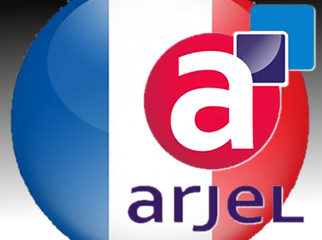 WatchandWager, the San Francisco-based off-track betting subsidiary of Isle of Man-based Webis Holdings, has inked a comingling deal with French horseracing giant Pari Mutuel Urbain (PMU). Starting next month, WatchandWager’s US punters can bet into PMU’s racetrack pools and the WatchandWager site will also live stream French races and supply racing data. The deal brings the number of Tote territories available to WatchandWager customers to eight, the others being the UK, Ireland, Sweden, Japan, Canada, Australia and New Zealand.
WatchandWager, the San Francisco-based off-track betting subsidiary of Isle of Man-based Webis Holdings, has inked a comingling deal with French horseracing giant Pari Mutuel Urbain (PMU). Starting next month, WatchandWager’s US punters can bet into PMU’s racetrack pools and the WatchandWager site will also live stream French races and supply racing data. The deal brings the number of Tote territories available to WatchandWager customers to eight, the others being the UK, Ireland, Sweden, Japan, Canada, Australia and New Zealand.
While France’s former monopoly race betting operator had another year of growth in 2012, French online horse betting revenue has risen a mere 3% since the start of the year and had “dropped off” over the past five weeks, according to Jean-Francois Vilotte, president of French gaming regulator ARJEL. Vilotte told French media outlet Les Echos that the country’s online gambling market had generated gross gaming revenue of €188m in the first quarter of 2013, off 1% from the same period last year. Vilotte used the interview to reiterate his plea for the French government to switch to a taxation model based on GGR rather than turnover.
The lone bright spot in France’s online market was sports betting, with year-to-date online revenues up 20% to €63.4m. Football accounted for 60% of all sports wagers. Online poker tournament fees were stable at €41m but cash games slumped 14% to €61.2m. The number of player accounts has fallen to 300k, down 20k from the same point last year. Vilotte called the French online gambling market ‘consolidated’ as he revealed that as of late March there were 21 operators holding 32 online licenses (although Groupe Partouche will be cashing out in June after determining the market and profits were incompatible).
ARJEL recently published its inaugural gambling prevalence figures, which show 47.8% of French adults gambled at some point during 2010. Some 10.9% of gamblers did so more than 52 times that year, while 4.7% earned the designation of big spenders for depositing over €500 into their betting accounts. Of those who gambled online during the country’s first year of a regulated market, 22.7% were considered to be displaying problem gambling tendencies. ARJEL cops to the fact that its sample size for determining this was small, but maintains that 400k French online gamblers were at moderate risk for problem gambling, while 200k were deemed to be playing too much.
ARJEL used its findings to recommend 33 policy changes to the French government, including stricter rules regarding advertising and requirements for sites to use pop-up ads notifying players if they’re playing time exceeds four hours or their number of deposits gets too out of whack.
